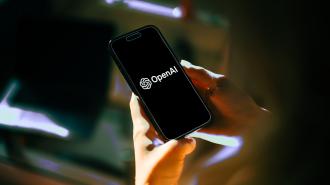OpenAI is reportedly developing “AI agents” that can perform tasks on people’s devices on request — and if it succeeds, the agents could revolutionize how we interact with AI.
The challenge: OpenAI’s ChatGPT is great at generating text — it can pen you a poem about Paris or draft an itinerary for a trip to the City of Light.
It can’t actually do anything with the text, though — if you want to email the poem to your spouse or book the flights and hotel rooms, you’ll need to do so manually.
AI agents: OpenAI is trying to change that — according to a report in The Information, which cites a person with knowledge of the effort, the company is developing two “AI agents” to execute tasks on phones or computers.
OpenAI is training its AI agents by showing them examples of people using computers.
One of the agents will reportedly be able to handle web-based tasks, such as booking tickets or collecting data from websites. The other could work with apps on the device — as an example, the source described transferring data from a document to a spreadsheet.
OpenAI has reportedly been developing these AI agents for more than a year and is training them by showing them examples of people using computers — this is the same approach tech startup Rabbit used to train the AI agent in its R1 device.
The release date of OpenAI’s AI agents is still to be determined, and the company did not respond to The Information’s request for comment on them.
Challenges ahead: ChatGPT is built on a large language model, which bases its output on complex models that predict what is most likely to come next. But those AI models sometimes “hallucinate” or present false information as accurate.
OpenAI will need to convince people its AI agents can protect their private info.
That’s not such a big deal if your only interactions with ChatGPT happen on OpenAI’s website, where you can fact-check its answers, but the allure of an AI agent is that it’s autonomous: you just give it a command and it does it.
It’s not clear how OpenAI plans to ensure its AI agents won’t make similar — but much costlier — mistakes if customers give them access to their email, credit card details, and other personal information. Even if the agents generally work, the company will need to convince people the system can protect their private info.
Still, if OpenAI is able to overcome these issues, its agents could signal a new era in how we interact with AI — just like ChatGPT did back in 2022.
We’d love to hear from you! If you have a comment about this article or if you have a tip for a future Freethink story, please email us at [email protected].






